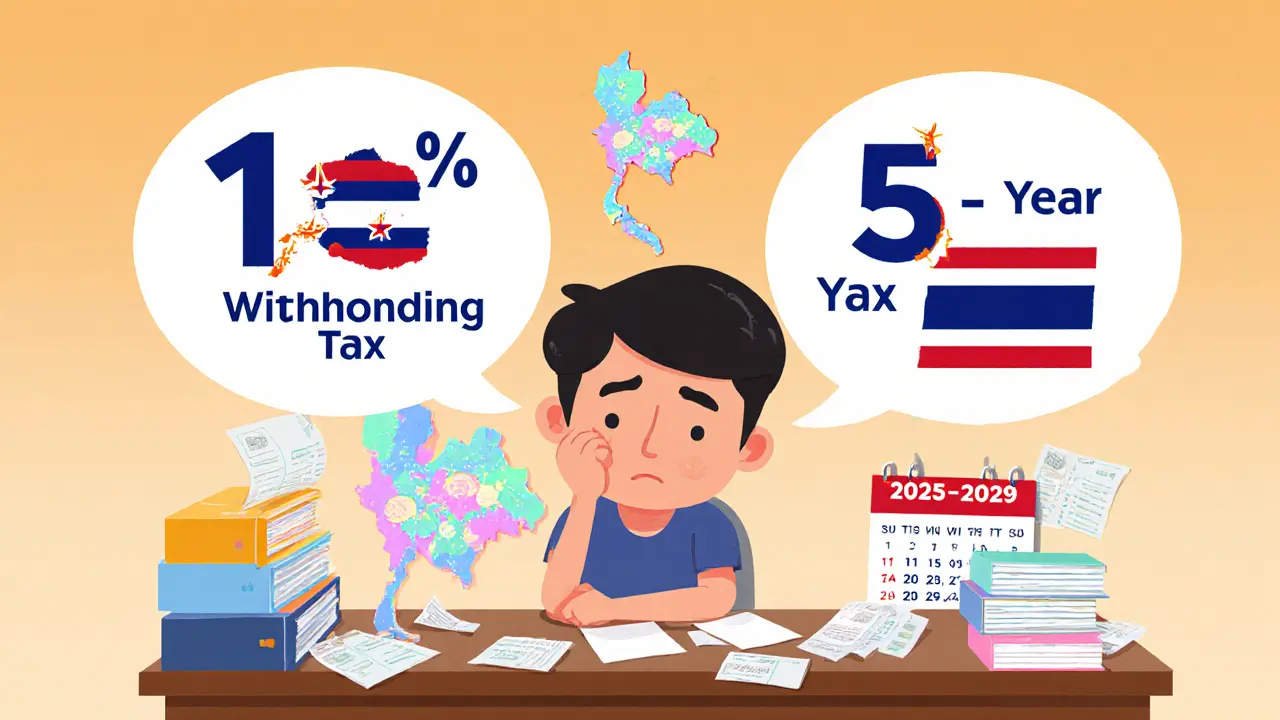Learn why Thailand's crypto tax isn't a flat 15% gain tax. Discover the 5‑year exemption for residents, the 15% withholding for foreign entities, and how to stay compliant.
Thailand Cryptocurrency Tax – What You Need to Know
When dealing with Thailand cryptocurrency tax, the set of rules the Thai government applies to digital assets, covering how gains are reported and taxed. Also known as Thai crypto tax, it impacts anyone who buys, sells, or holds crypto in the Kingdom. This Thailand cryptocurrency tax is a specific slice of the broader cryptocurrency tax, a global concept that treats virtual tokens like any other taxable asset. Understanding it means knowing who collects the money, what events trigger a tax bill, and how the paperwork fits into everyday life.
Who Enforces It and What Gets Taxed
The Thai Revenue Department, the tax authority that oversees all fiscal matters in Thailand is the body that enforces the crypto tax regime. It treats crypto‑related profits as capital gains tax, a levy on the profit made when you sell an asset for more than you paid. Whether you flip Bitcoin in a day or hold Ethereum for months, the moment you realize a gain, the Department expects a report. The tax rate aligns with the personal income tax brackets, ranging from 5 % to 35 %, so your overall earnings matter. Tax filing becomes a routine task: you must keep transaction logs, calculate net gains, and submit a declaration on the annual PIT (Personal Income Tax) form. Missing a deadline can trigger penalties, and the Department has started using blockchain analytics to spot undeclared activity. Because the rules also cover crypto‑related services—like staking rewards or DeFi yields—you’ll see capital gains tax applied to those earnings as well.
For most Thai users, the biggest hurdle is record‑keeping. Every trade, swap, or transfer should be logged with date, amount, fair market value in THB, and any fees paid. This data feeds the tax filing process and lets you compute the net gain or loss for the year. Many traders rely on spreadsheet templates or specialized crypto tax software that can import exchange CSVs and auto‑calculate the taxable amount. If you receive crypto from airdrops or mining, those tokens are treated as ordinary income at their fair market value on the receipt date, then become subject to capital gains tax when you later sell. The Thai Revenue Department also expects you to report crypto held in foreign wallets if the total value exceeds the reporting threshold, so cross‑border holdings are not a loophole. By staying organized and filing on time, you avoid interest, fines, and the hassle of an audit.
Below you’ll find a curated list of articles that walk through each piece of the puzzle—from how to calculate gains on popular exchanges to step‑by‑step guides for filing your annual return. Whether you’re a beginner just starting to trade or an experienced investor looking to tidy up your tax paperwork, the posts below give you practical tips, real‑world examples, and the latest regulatory updates you need to stay compliant in Thailand.

